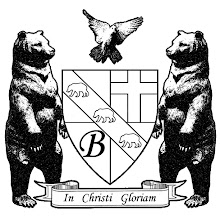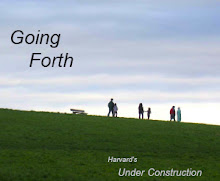
John Shelby Spong is a 76-year-old former Episcopal Bishop of Newark who writes a lot of books with subtitles like
A Bishop Rethinks the Meaning of Scripture and
A Bishop Rethinks the Birth of Jesus. I stumbled across a brief essay of his today entitled "
A Call for a New Reformation," which I read with great interest. It concluded with the following passage:
"Martin Luther ignited the Reformation of the 16th century by nailing to the door of the church in Wittenberg in 1517 the 95 Theses that he wished to debate. I will publish this challenge to Christianity in The Voice. I will post my theses on the Internet and send copies with invitations to debate them to the recognized Christian leaders of the world. My theses are far smaller in number than were those of Martin Luther, but they are far more threatening theologically. The issues to which I now call the Christians of the world to debate are these:
"1. Theism, as a way of defining God, is dead. So most theological God-talk is today meaningless. A new way to speak of God must be found.
2. Since God can no longer be conceived in theistic terms, it becomes nonsensical to seek to understand Jesus as the incarnation of the theistic deity. So the Christology of the ages is bankrupt.
3. The biblical story of the perfect and finished creation from which human beings fell into sin is pre-Darwinian mythology and post-Darwinian nonsense.
4. The virgin birth, understood as literal biology, makes Christ's divinity, as traditionally understood, impossible.
5. The miracle stories of the New Testament can no longer be interpreted in a post-Newtonian world as supernatural events performed by an incarnate deity.
6. The view of the cross as the sacrifice for the sins of the world is a barbarian idea based on primitive concepts of God and must be dismissed.
7. Resurrection is an action of God. Jesus was raised into the meaning of God. It therefore cannot be a physical resuscitation occurring inside human history.
8. The story of the Ascension assumed a three-tiered universe and is therefore not capable of being translated into the concepts of a post-Copernican space age.
9. There is no external, objective, revealed standard writ in scripture or on tablets of stone that will govern our ethical behavior for all time.
10. Prayer cannot be a request made to a theistic deity to act in human history in a particular way.
11. The hope for life after death must be separated forever from the behavior control mentality of reward and punishment. The Church must abandon, therefore, its reliance on guilt as a motivator of behavior.
12. All human beings bear God's image and must be respected for what each person is. Therefore, no external description of one's being, whether based on race, ethnicity, gender or sexual orientation, can properly be used as the basis for either rejection or discrimination.
"So I set these theses today before the Christian world and I stand ready to debate each of them as we prepare to enter the third millennium."
I don't think it's going too far to say that, in these twelve theses, Spong has flatly rejected (or attempted to reject) a few of the more central tenets of the Christian faith as it has been almost universally understood for nearly 2,000 years. Now, this would be easily understandable if Spong's goal were to destroy Christianity, but he actually asserts that his proposed "Reformation" is the "only . . . thing [that] will save this venerable faith tradition." The way he sees it, this "Reformation will be about the very life and death of Christianity," and he claims to be rooting for life.
Based on what little I know of John Shelby Spong, he seems like an intelligent, amiable, and generally good man, but I can't help feeling that his whole project is a bit disingenuous. While Spong claims to want to save "Christianity," he exhibits nothing but disdain for the traditional faith, and I cannot fathom why (or how, for that matter) he ever became a bishop, or why he insists on calling his non-religious, humanistic set of beliefs "Christianity." I honestly don't understand.
Maybe for the publicity?
 Growing up, I heard every once in a while that the word Halloween was derived from a contraction of the phrase All Hallows' Eve, but that never had much significance for me since I had no idea what All Hallows' Eve meant in the first place. It makes a lot more sense now that I realize that hallow is an old word for saint and that October 31 is the day before the Catholic solemnity All Saints' Day, a day when the faithful on earth remember and honor all those members of the Mystical Body of Christ who have gone before us and are now in Heaven. This feast has its roots in the Catholic understanding of the communion of saints. As the Catechism of the Catholic Church says:
Growing up, I heard every once in a while that the word Halloween was derived from a contraction of the phrase All Hallows' Eve, but that never had much significance for me since I had no idea what All Hallows' Eve meant in the first place. It makes a lot more sense now that I realize that hallow is an old word for saint and that October 31 is the day before the Catholic solemnity All Saints' Day, a day when the faithful on earth remember and honor all those members of the Mystical Body of Christ who have gone before us and are now in Heaven. This feast has its roots in the Catholic understanding of the communion of saints. As the Catechism of the Catholic Church says:































